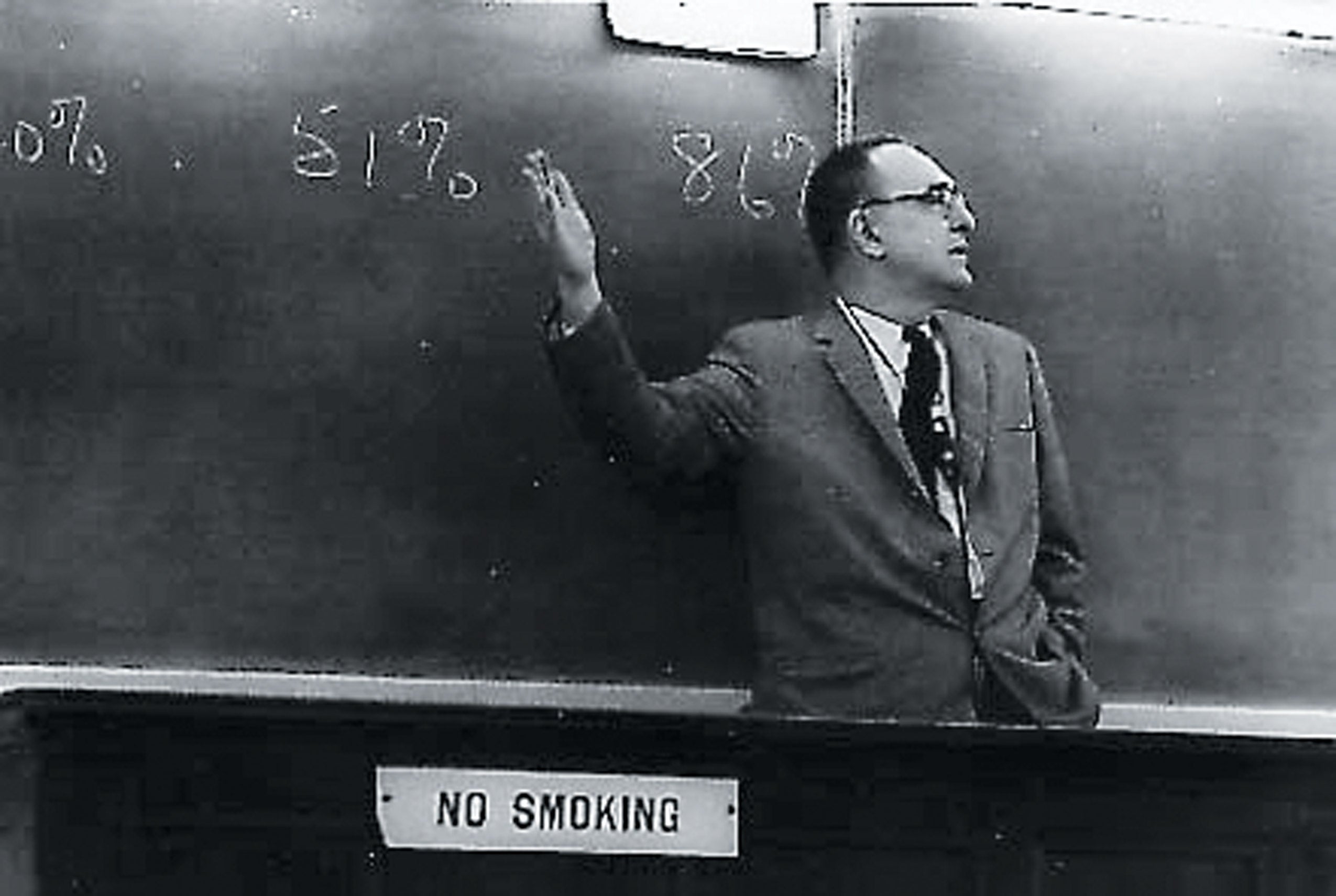Langdell Professor of Law, Emeritus, Ernest Joseph Brown ’31 died December 31, 2001, in Fort Worth, Tex. He was 95.
“Ernest Brown was one of the true giants of legal education at the Harvard Law School,” said Dean Robert Clark ’72. “He served the school long and well, and was both a living legend and a dear friend. We mourn his passing.”
Upon graduating from Harvard Law School, Brown traveled to Buffalo, N.Y., where he taught at the University at Buffalo Law School and also practiced law. Shortly after the United States’ entry into World War II, he joined the legal staff of the War Production Board–an organization charged with ensuring that the wartime economy produced the products necessary for the successful prosecution of the war. Brown also served in the Army Air Forces and the Office of Strategic Services. While in the employ of the OSS, Brown was often stationed in enemy territory reporting on troop movements and preparations.
At the conclusion of his war service, Brown returned to the University at Buffalo Law School, where he served as acting dean. In 1946 he was a visiting professor at Harvard Law School and then in 1947 was named a full professor. Among his more prominent students were former U.S. attorney general Janet Reno ’63 and Supreme Court Justices David Souter ’66, Anthony Kennedy ’61, Antonin Scalia ’60, Ruth Bader Ginsburg ’56-’58, and Stephen Breyer ’64.
Brown retired from teaching at Harvard Law School in 1971 but remained an emeritus professor of law until his death.
After leaving HLS, Brown worked for the Department of Justice’s tax division, where he was a member of the appellate section.
In 1981 Brown was presented with the Justice Department’s Distinguished Service Award for his work on a circuit court case that resulted in government savings of more than $1 billion. In 1991 President George Bush honored him with the Distinguished Presidential Rank Award for his long career in public service. Brown retired from the Justice Department in January 2001.
Ernest Brown Remembered
By Daniel A. Rezneck ’59
The death of Ernest J. Brown ’31 brought back some warm memories of life at the Harvard Law School in the 1950s. I took Professor Brown’s tax course in 1957. Tax was a mystery to me then and now, but I learned a lot from Ernie Brown (as we all called him, although not to his face) about precision of thought and expression. An example is a story about him that was passed on from student generation to generation. An acquaintance came up to him in front of Langdell one spring and asked: “Ernest, have you finished correcting your exams yet?” He responded: “Goodness, it would take me a lifetime to correct them! I’m only grading them.”
I had the pleasure of reminding Ernie of that story at a class reunion in Cambridge in 1999. He was attending at the invitation of the Class of 1949, which had adopted him. I sat next to him at lunch, and we had a wonderful time. He loved hearing that story, and he regaled me with tales of the great Mississippi River flood of 1927, which he had witnessed as a young man in the Mississippi Delta.
Ernie was a shy man, and he had a habit of looking and speaking downward on the lecture platform during class. We used to say that he had the best-educated shirt in Cambridge, at least on tax law. I wrote a completely illegible tax exam in his course–probably out of self-defense–and I received a grade exactly equal to my average for the first two years. I always thought that was a gift horse into whose mouth I should not look too closely, so I never asked him about it. I did ask him about a rumor that he had played the line for the Princeton football team in the 1920s and was an all-American. He was a large man, which gave the story some superficial plausibility. He replied in his soft Southern accent: “Ah was a devoted follower of the Princeton football team, but Ah never had the honor of playing.”
Ernie’s career after teaching at Harvard is an inspiration to those of us who have sought second careers, especially in public service. After leaving Harvard in 1971, he was a stalwart of the tax division of the U.S. Department of Justice for the next 30 years, retiring as probably its oldest employee in history. I saw him all too rarely in Washington because he was so absorbed in his work. Yet he cast a long shadow and further added to his legend.
I know that it is a cliché to say that God broke the mold after he made Ernie Brown. But it is true.
Daniel A. Rezneck ’59 was a partner for many years in the Washington, D.C., law firm Arnold & Porter and retired to become the general counsel of the District of Columbia financial control board. He is presently a senior counsel in the Office of the D.C. Corporation Counsel.
